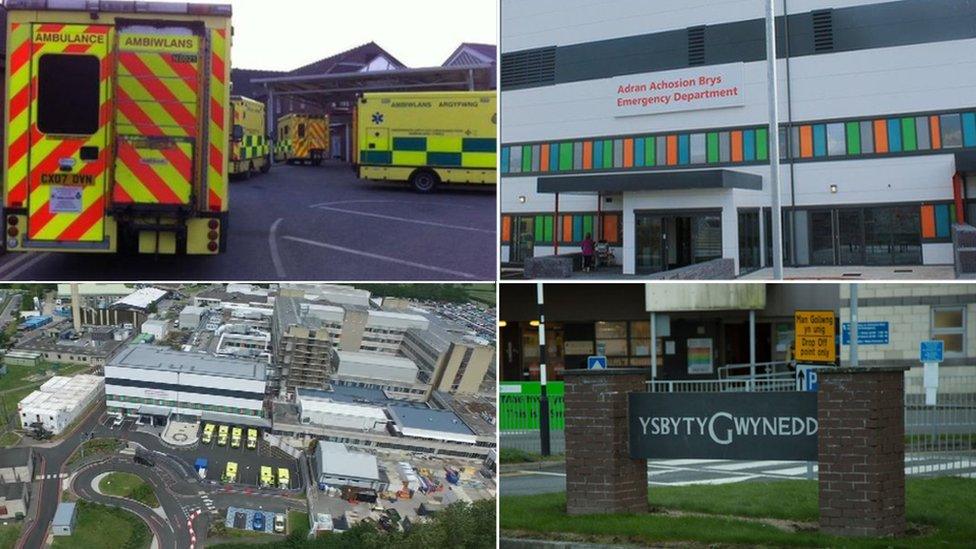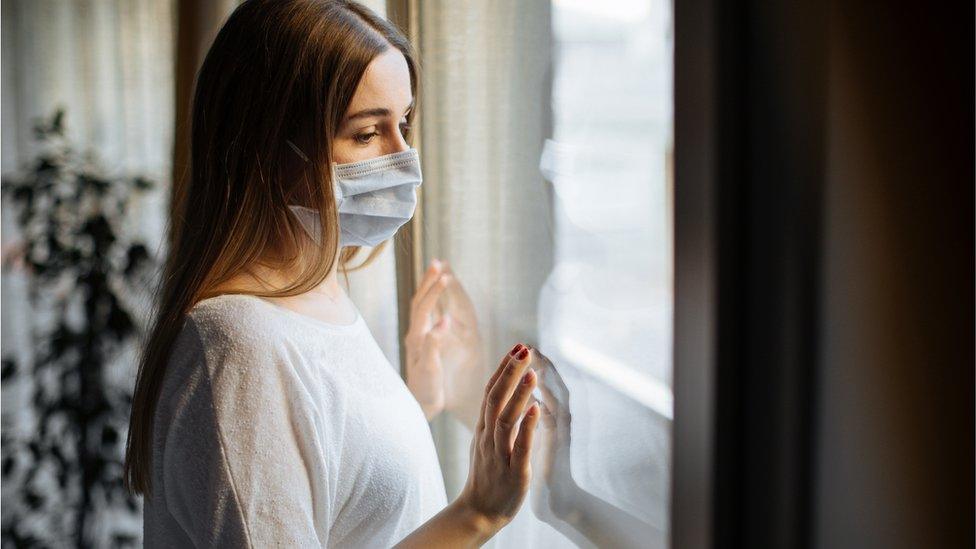Coronavirus: Lockdown could lead to 'layered' mental health issues
- Published
Consultant psychiatrist Dr Bob Colgate said mental health issues could be worsened by isolation and job fears
People who did not access mental health support during lockdown could now be overwhelmed by "layered" issues, a consultant psychiatrist has warned.
Dr Bob Colgate, of Bridgend's Princess of Wales Hospital, said demand "changed abruptly" with fewer seeking help while also facing isolation and stress.
Mental health charity Hafal has called for a clear plan for health boards.
Welsh Government said it had provided "clear information" on sustaining services during the pandemic.
Concerns among health care professionals include people not coming forward for help as they usually would have.
"The number of referrals and people asking for assistance dropped hugely," said Dr Colgate.
"Our concern is that people with mental health concerns are not presenting. They are not coming to hospital, which is understandable, [but] they are also not accessing their GP."
He said there were now concerns about an increase in patients who would have been seen three or four months ago under normal conditions.
"Some of those patients will potentially be more unwell or more complex than they otherwise would have been," he said.
"There are a lot of issues now, such as anxiety, depression associated with loneliness or isolation, or concerns about jobs and finances. All these things could be layered on top of the normal problems."

Referrals to mental health services "dropped hugely" in lockdown
At the height of the pandemic, a health board in north Wales wrongly discharged almost 1,700 patients from mental health support services.
In May, Betsi Cadwaladr University Health Board (BCUHB) was forced to apologise after it advised people to seek new mental health support referrals once the pandemic had eased.
It had estimated between 200 and 300 patients were affected but it later emerged the true figure was 1,694.
'Health boards needed government guidance'
Hafal chief executive Alun Thomas said: "We have seen some situations where services have been shut where they shouldn't have been shut, and that has been addressed and dealt with.
"The key is that these seven health boards have needed the guidance from the government so the health boards then work to a plan, rather than the health boards trying to devise plans and then get them checked out by the Welsh Government.
"The health board staff have been working very, very hard during this period. But unless the Welsh Government had set a series of priorities - for example, how quickly someone should get a response during covid - it is very difficult for those health boards to come up with a map."
In response the Welsh Government said it already provided "clear information" and the NHS had to prepare for a potential second peak.
A spokesperson said: "The Quarterly Operating Frameworks for the NHS reflects the continued need to respond to Covid-19, to maintain essential services and to resume routine services over time.
"For mental health, it builds on the essential services framework which provides clear information on which mental health services need to be maintained during the pandemic. We are working with a range of mental health partners to strengthen support as part of our recovery planning."
- Published28 May 2020

- Published26 May 2020

- Published20 February 2019
